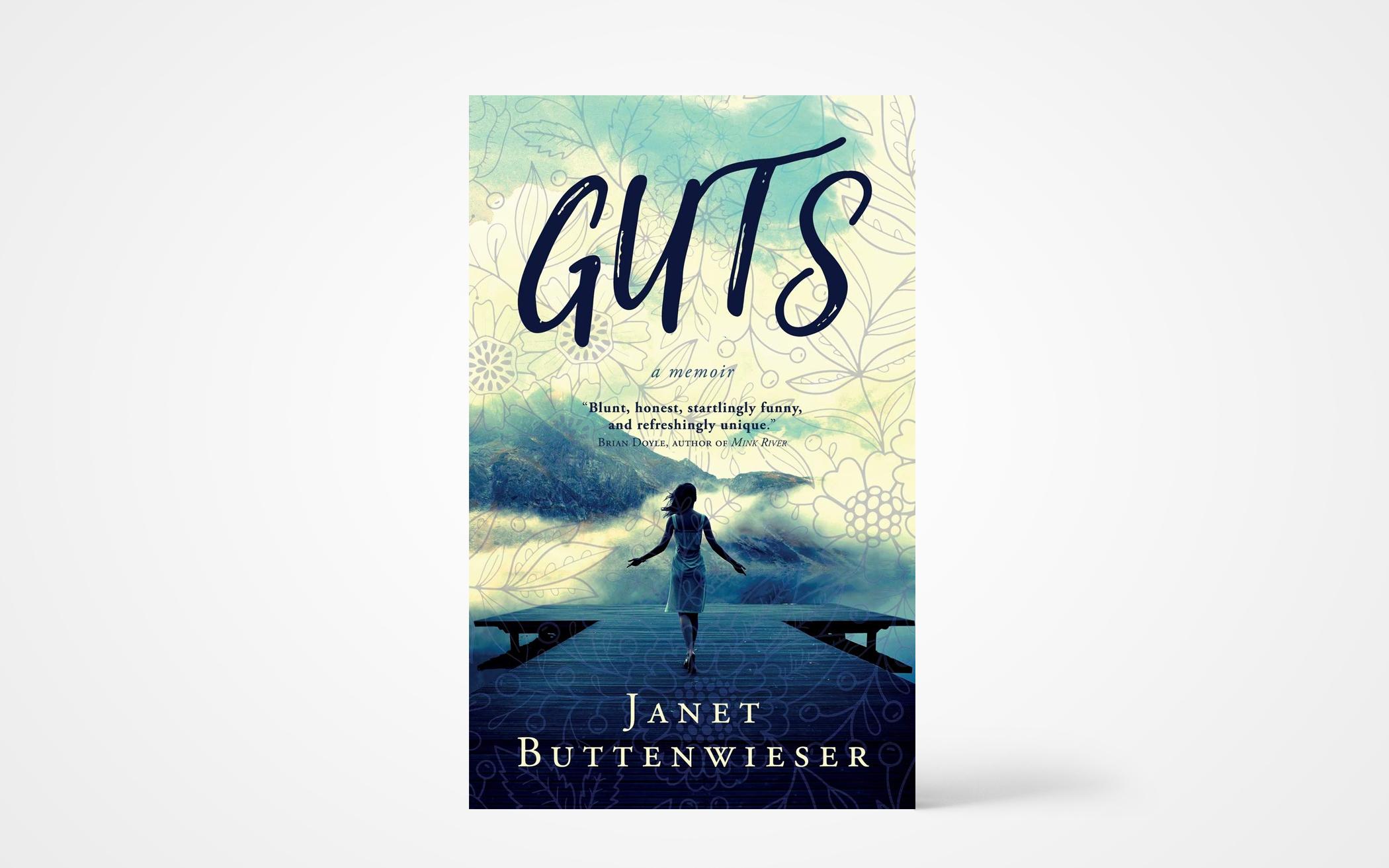Janet Buttenwieser was only 26 and shivering beneath a hospital gown when she got the bad news. Crohn’s Disease was causing the intestinal pain and problems she had the previous year. With it she heard three other words: “Disease. Lifelong. Incurable.”
Buttenwieser’s journey with challenged health had begun. It would prove to be a journey filled with setbacks and a key misdiagnosis.
“Bad things did not happen to me,” she recalls thinking. “I was 26 years old. Being ill for the past year had made me feel lonely, and the prospect of living the rest of my life with a chronic illness lonelier still.”
Another initial loss was her outdoor vigor. She was a hiker, a runner, a committed outdoor person who had left the East Coast for the mountains of Washington. Buttenwieser contended with something else that she needed to lick in order to survive the medical journey: timidity. She had to learn to use her voice and be her own advocate.
An important subplot braided into Guts is the story of her best friend, Beth, who also took a health journey. Beth’s was even more severe: brain cancer. Beth was a new friend—but a good one—whose assertive ways Buttenwieser admired.
Buttenwieser humanizes suffering. Of her soul-turmoil, she says, “The ugliest part of me … resided somewhere inside of me. Not my diseased intestine, but the shadowy matter that made up the fibers of my soul. I’d become bitter about my illness, resenting the healthy status of those closest to me.”
As a medical memoir, this story is well-told and moving. For those suffering medically, it would be normalizing, and for those not, it would educate and inspire.
Rough language is used at times, but for appropriate reasons. Humor abounds, too. Of enduring Prednisone, she writes, “On forty milligrams, my initial dose, my cheeks swelled to the point that my eyes almost disappeared. I looked like Violet Beauregarde in Charlie and the Chocolate Factory, inflating into a giant blueberry.”
Guts was finalist in the University of New Orleans Publishing Lab, and excerpts won other awards in literary journals, including a Pushcart nomination. Buttenwieser, a former librarian, holds an MFA from the Northwest Institute of Literary Arts.
To explain the place of Buttenwieser’s writing, her website quotes famous essayist Scott Russell Sanders. “(He) says that the personal essay ‘moves from uncertainty to less uncertainty.’ That’s what I love about nonfiction writing—the process of grappling with an idea or an experience on the page. I don’t claim to have it all figured out, not when I sit down to draft the opening sentence, nor when I polish a piece for the last time. For me, writing is a process of exploration.”
And Guts offers readers that—an exploration of what to do when bad things happen to good people. (Vine Leaves Press)
About the Author
Cynthia Beach authored the 2024 novel, The Surface of Water, and the writing book, Creative Juices for Writers. She co-directs Scriptoria Workshop with Newbery-winner Gary Schmidt. In 2025-6, she will serve as Artist in Residence in Dundee, Scotland.

